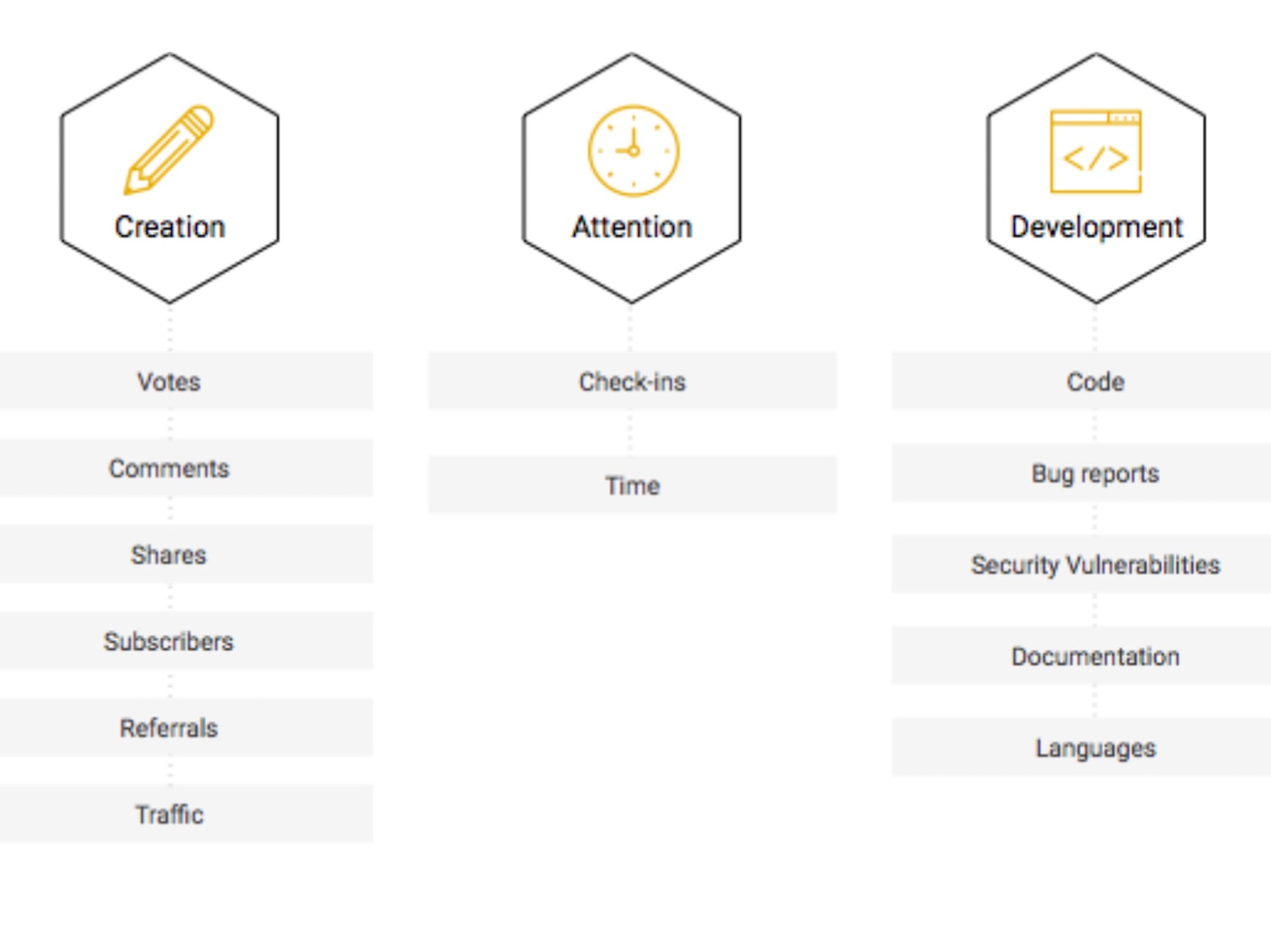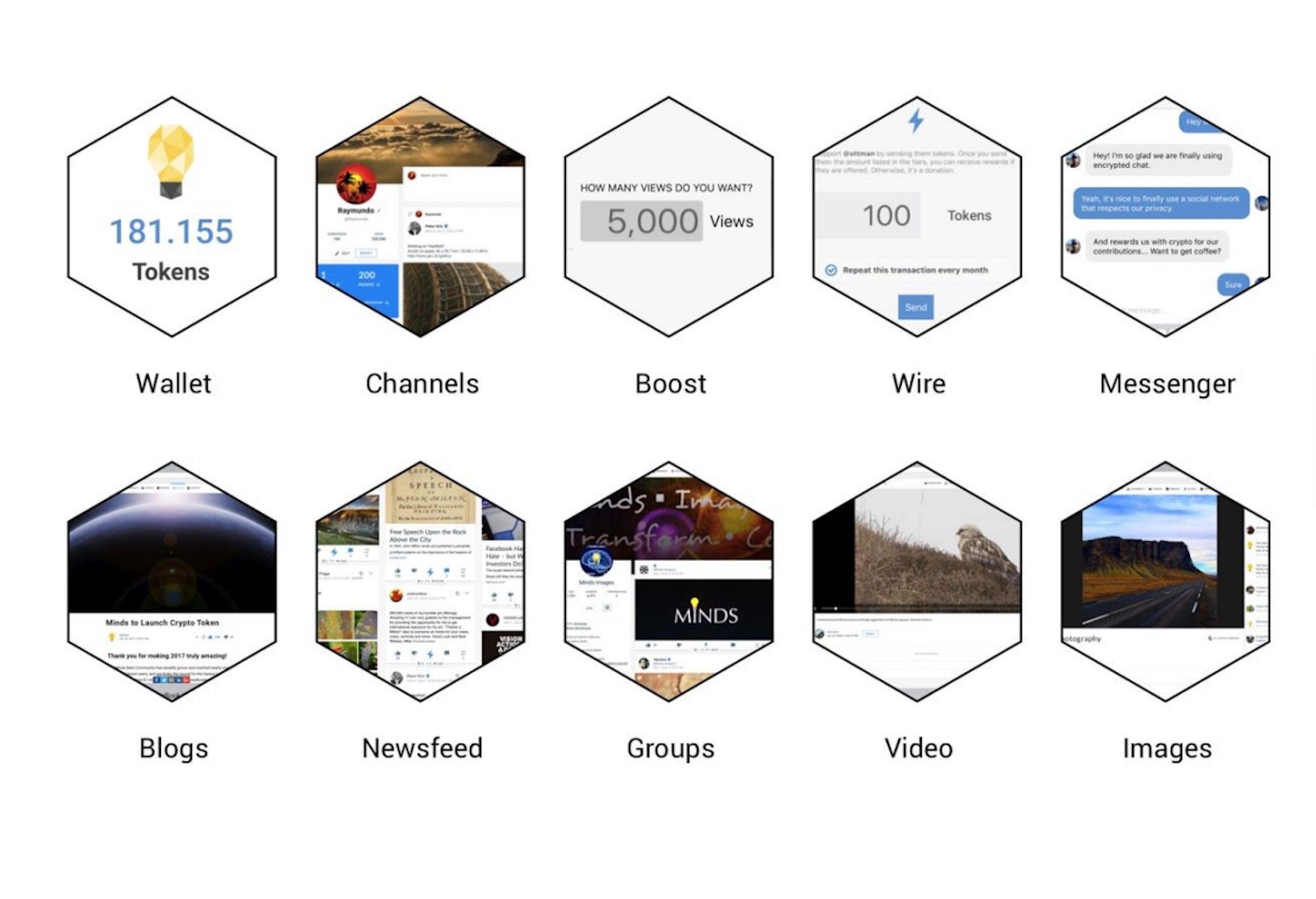Minds is the Facebook alternative that lets you make money off your data
Minds puts users at the forefront of decisions on the network by paying them with a cryptocurrency

Your support helps us to tell the story
From reproductive rights to climate change to Big Tech, The Independent is on the ground when the story is developing. Whether it's investigating the financials of Elon Musk's pro-Trump PAC or producing our latest documentary, 'The A Word', which shines a light on the American women fighting for reproductive rights, we know how important it is to parse out the facts from the messaging.
At such a critical moment in US history, we need reporters on the ground. Your donation allows us to keep sending journalists to speak to both sides of the story.
The Independent is trusted by Americans across the entire political spectrum. And unlike many other quality news outlets, we choose not to lock Americans out of our reporting and analysis with paywalls. We believe quality journalism should be available to everyone, paid for by those who can afford it.
Your support makes all the difference.Mark Harding was supposed to be playing the French horn in an orchestra at this stage in his life. Instead he’s coding an alternative to Facebook called Minds that is rapidly gaining traction in countries where social networks are being manipulated by dictatorial governments.
Harding, who is from Preston, was studying music in Glasgow when Bill Ottman, an American internet entrepreneur, got in touch with him about some code he had written in open source framework, where it is freely available for other developers to modify and redistribute.
It was 2012, three years before Minds launched, and Ottman was playing around with social network protocols, or the sets of rules that are used to govern the exchange of data between devices. Ottman wanted to make some changes to Harding’s framework. It was the summer break and Harding had some time on his hands, so he offered to make the changes.
In the summer of 2014, Harding graduated and moved to New York to work full time on Minds. “I got my degree and decided this was better, so the French horn is parked for the moment,” Harding says down the line from Manchester, where he has just returned to live after a couple of years in the US.
Minds, which officially launched in 2015, is an open source and decentralised social networking platform where users are rewarded with tokens for contributions in the community. It looks a lot like Facebook, with a newsfeed, chat function and the option to share photos and videos. But it is gaining traction as an alternative to Facebook and other social networks that make their money selling data to advertisers, without being transparent about how that data is gathered.

Minds, which describes itself a “the leading open source social network”, raised $1m through a crowdfunding campaign in July 2017 from 1,541 investors from all over the world, in just 19 days. Its stated goal is to put users at the forefront of decisions on the network by paying them with a cryptocurrency where all transactions are visible to the other users of the network, making it totally transparent.
“Facebook’s primary business model is selling data,” Harding says. “They can’t say that, but that is what they are doing. We exist as an alternative. If you want to know what our code is doing or to contribute to the code to make changes, we’re that place.”
It’s becoming increasingly hard for Facebook to deny that it makes money from user data. In March, an investigation revealed Facebook had failed to protect data analytics firm Cambridge Analytica from harvesting personal information from more than 50 million profiles to build a system that could target US voters using personal advertising, based on the user’s psychological profile.
I speak to Harding days after Facebook admits that it has identified campaigns to use Facebook to disrupt the US midterm elections. The campaigns were said to resemble techniques used by Russian groups, though Facebook said it did not know the extent of the operation.
“Why are people telling Facebook all this information anyway?” Harding says. “People think Facebook is private. They should be going to Facebook with the idea that it is all public.”
The idea that social networks track and sell data has been around since Edward Snowden leaked classified information on the US National Security Agency in 2013. While Facebook’s user base is slowly declining, the long line of security revelations have done little to challenge its dominance. But Harding says Minds has found that in places where Facebook’s actions are threatening the safety of its users, people are starting to look for the exit.

In May, the Vietnamese government introduced legislation to restrict free speech on social networks, hardening policing of online dissent. Facebook, Google and other global tech companies reportedly pushed back against the provisions, which would require them to store data on Vietnamese users locally and open offices in Vietnam.
But these tech giants say they have to abide by local laws in the countries where they operate. They did not show similar resistance to measures that would strengthen the government crackdown on political activism, according to reports.
In the aftermath, Minds saw its user base grow between 200,000 and 250,000, bringing the total number of users close to £1m. “I don’t know what’s going to happen there, we’ll probably get banned in Vietnam, but we think you should be empowered to say what you want, including disagreeing with the Vietnamese government,” Harding says.
On August 13, Minds will switch from tokens to blockchain technology to reward users. Ottman and the Minds team believe that the fusion of blockchain and social networking is inevitable as these technologies evolve. Minds rewards users with tokens, a kind of currency issued on blockchain, for activities including generating high quality content, account setup and verification, referring new users, maintaining an active channel, finding bugs and successfully submitting code.
This offers an alternative to Facebook, which extracts value from the network, by allowing users to profit from their own activity. There are even plans to allow users to accept marketing from advertisers in return for tokens, so that users profit from the advertising process rather than the platform.
Harding and Minds will have to battle the apathy of users who believe that so many people are using Facebook and other centralised networks that no one else can compete. What would Harding say to users who feel that it’s too late to take back control of their data?
“That’s exactly what Google and Facebook and Amazon want you to feel,” Harding says. “But the privacy scandals only ever get bigger. Change has to happen. Using alternative platforms and moving into a more transparent, open network is one solution.”
Join our commenting forum
Join thought-provoking conversations, follow other Independent readers and see their replies
Comments